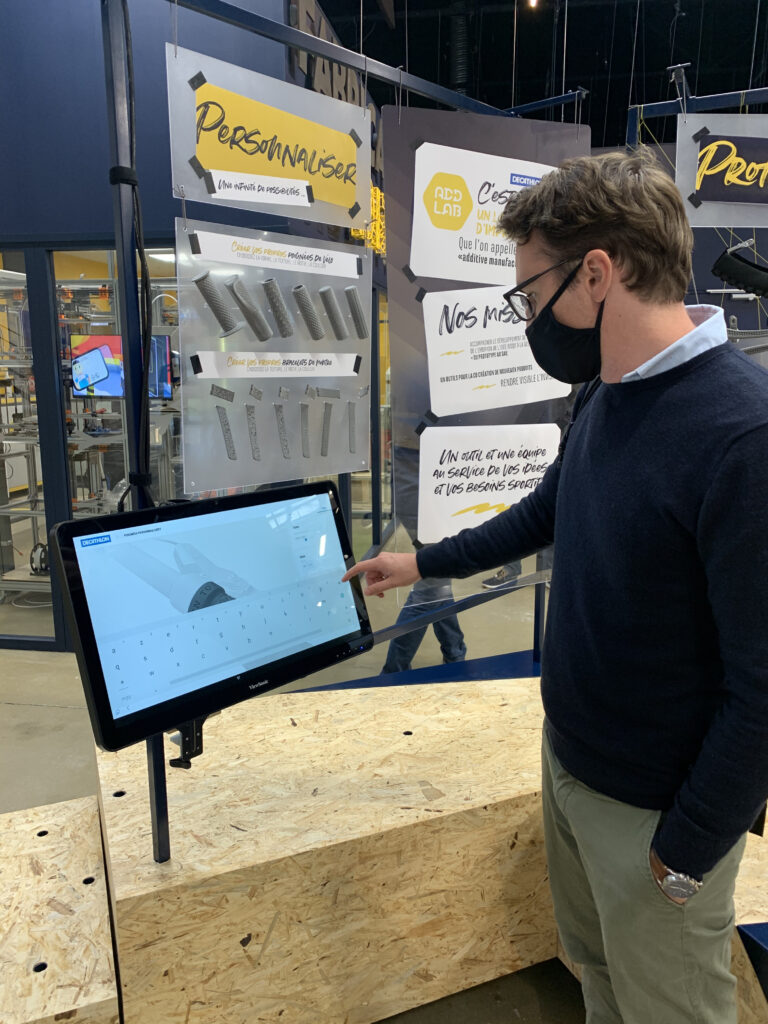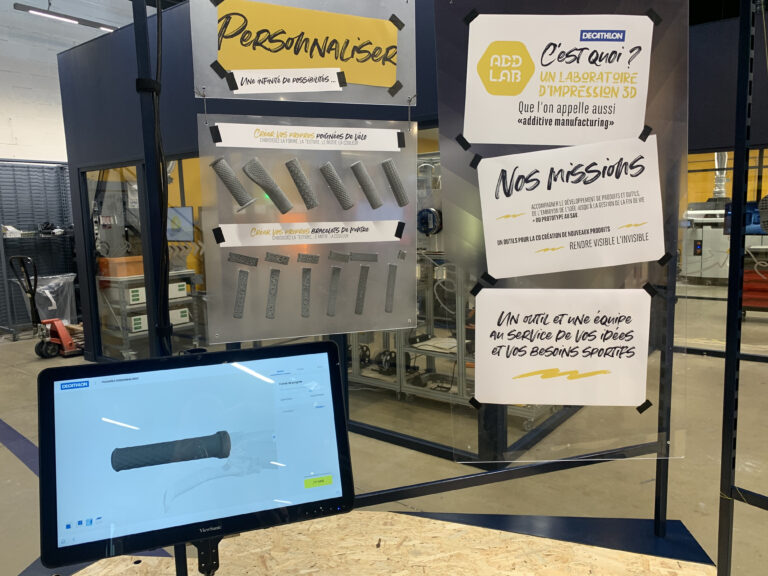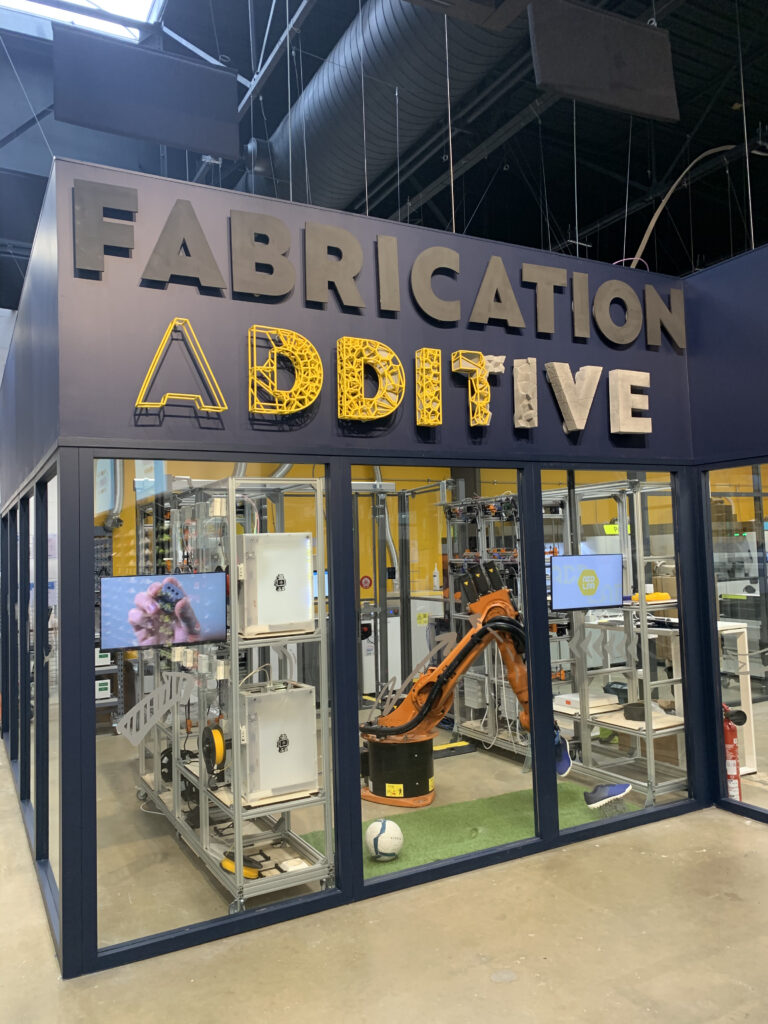The drive to find innovative product solutions to distinct yourself from competitors and provide the customer with the highest possible value is essential for getting ahead in retail. Or staying ahead. Since consumers seek more custom products that fit their exact needs, companies find their way to digital production processes. Decathlon is one of these early adopters who, in collaboration with Twikit, now provide a unique in-store customer experience.
Decathlon DX store
Previously being a wholesaler, Decathlon gradually expanded its product portfolio with acquired and own brands. Now, they are gathering their expertise in retail and product expansion and taking it one step further. The brand-new Decathlon DX store in Villeneuve d’Asq is exclusive for members, offers only a temporary selection of products, and is rigged with RFID readers. These are all aspects built around customer experience and how this adds value to any product.

Decathlon turned to Twikit’s digital technologies regarding product customization and 3D-printing to further enhance the consumer experience. Twikit assisted and made it possible for Decathlon customers to design their own personalized handlebars in-store, as one of the first products to launch with others in the pipeline. By building a customizer powered by TwikBot, the connection between the user experience and manufacturing is enabled.

Customers have the possibility to customize the shape, design, icons on the side of the handlebar, and even add personalized text. In other words, the customer adjusts the product to fit their wants and needs—an added value for a retailer and, even more important, for their visitors. To take it a step further, made-to-fit products based on 3D scans performed in-store are in the near future. Think of insoles or helmets that fit the customer like a glove.
Digital manufacturing flow
Now highlighting the advantages of using the Twikit technology for production is the introduced digital flow—the switch to a digital manufacturing process. Every order for a custom handlebar has a unique ID code. These orders, which each contain production files, are sent to the Decathlon Add Lab 3D-printing studio (also in-store) through the Twikit order management software. As the last step, the custom product is printed in TPU material with on the inside the unique ID code showing. Thanks to the code appearing on the handlebar itself, the Decathlon employees can efficiently recognize and sort the final products.
It is an end-to-end solution that makes it possible for Decathlon to offer exclusive customized products without complicating and slowing down manufacturing. The process is efficient and made accessible for in-store use.
When the custom product increases in popularity or when Decathlon adds more customizable items, the Twikit cloud-based software can grow together with the demand. Because the number of configurators and hosted products is infinite, there is no limit regarding capacity. This is thanks to the Twikit cloud architecture; it can scale up or down as required.
Retail & 3D-printed customized products
The customizer was set up in Decathlon’s branding and connected to their specific manufacturing workflow. In a next phase extensive integrations in e-commerce are possible with Twikit’s open architecture. However, the end-to-end digital flow is adjustable for any product and any retailer. The rapid developments in manufacturing and the increasing demand for custom products make it interesting for retailers and brands to look into customizable products in-store. The new business model offers additional revenue streams to Decathlon with a high degree of product personalization possibilities and customer value.
